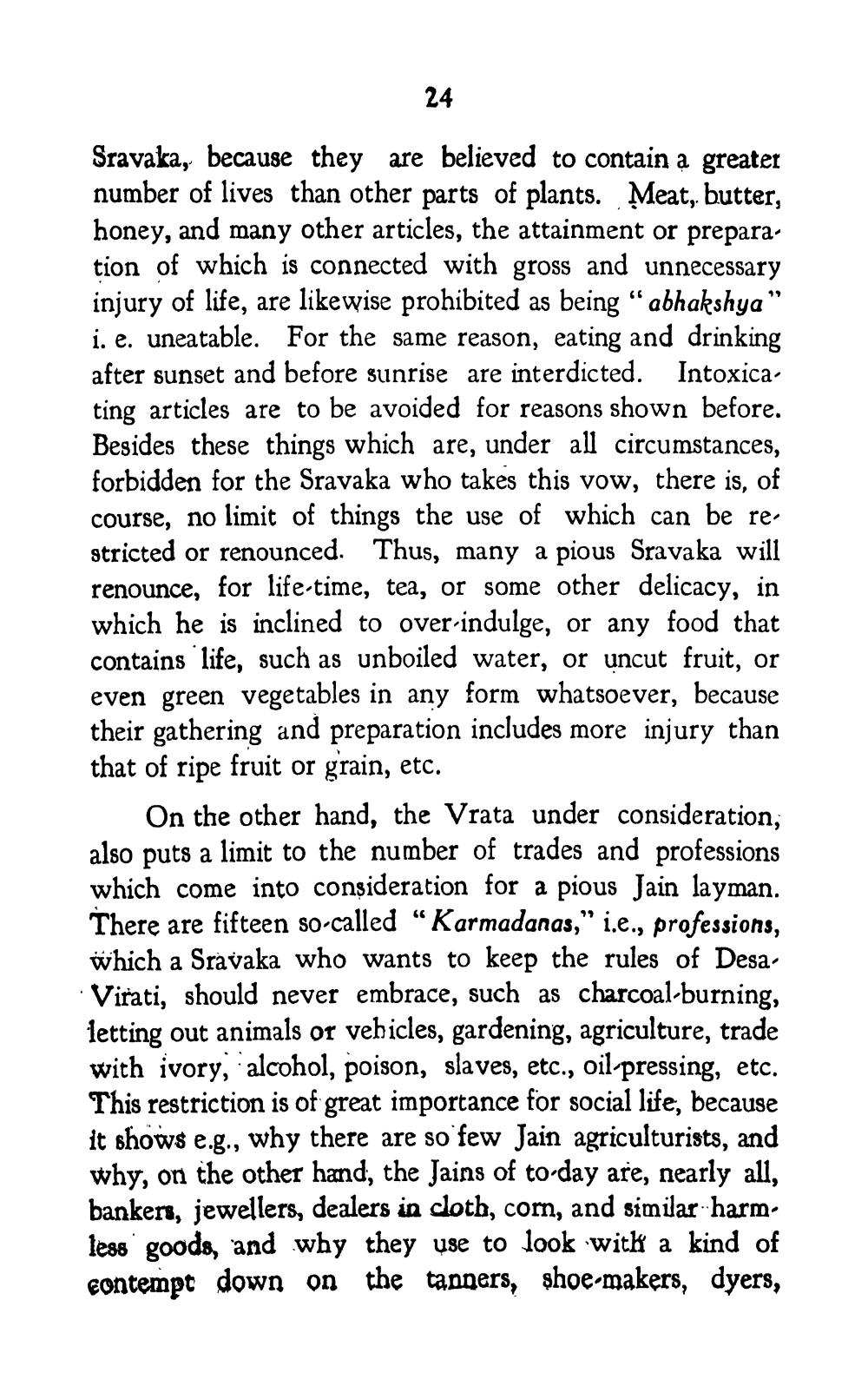________________
Sravaka, because they are believed to contain a greater number of lives than other parts of plants. Meat, butter, honey, and many other articles, the attainment or prepara. tion of which is connected with gross and unnecessary injury of life, are likewise prohibited as being “abhakshya" i. e. uneatable. For the same reason, eating and drinking after sunset and before sunrise are interdicted. Intoxica. ting articles are to be avoided for reasons shown before. Besides these things which are, under all circumstances, forbidden for the Sravaka who takes this vow, there is, of course, no limit of things the use of which can be re. stricted or renounced. Thus, many a pious Sravaka will renounce, for life-time, tea, or some other delicacy, in which he is inclined to over-indulge, or any food that contains life, such as unboiled water, or uncut fruit, or even green vegetables in any form whatsoever, because their gathering and preparation includes more injury than that of ripe fruit or grain, etc.
On the other hand, the Vrata under consideration, also puts a limit to the number of trades and professions which come into consideration for a pious Jain layman. There are fifteen so-called “Karmadanas," i.e., professions, which a Sravaka who wants to keep the rules of DesaVirati, should never embrace, such as charcoal-burning, letting out animals or vehicles, gardening, agriculture, trade with ivory, alcohol, poison, slaves, etc., oil-pressing, etc. This restriction is of great importance for social life, because It shows e.g., why there are so few Jain agriculturists, and why, on the other hand, the Jains of to-day are, nearly all, bankens, jewellers, dealers in cloth, corn, and similar harmless goods, and why they use to look with a kind of contempt down on the tangers, shoe-makers, dyers,




